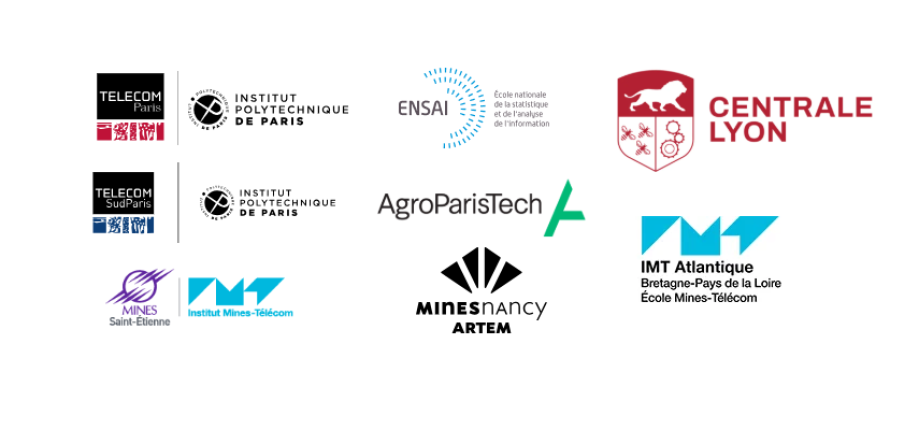ENSAE & other engineering schools

These programs allow ENSAE to welcome highly motivated students who have obtained excellent results in these schools and who wish to acquire additional training in economics, statistical sociology, data science, finance or actuarial science; they also allow ENSAE students to specialize at the partner school (in particular Télécom Paris and AgroParisTech). In all cases, entry into the program requires the development of a pedagogical project validated by the two departments of studies.
Admission
Students apply during the second year of their home school, in February, for direct admission to the second year of the host school. Applicants' files are pre-selected by the home school's director of studies and then sent to the host school's director of studies. Admissions are decided by the competent authorities of the two schools (Teaching and Research Committee for ENSAE). The number of admissions is limited and only students with a coherent project and excellent academic results are admitted.
Course of study
The double degree programs all follow the same "2+2" pattern: two years at the partner school (first year then second year) then two years at ENSAE (second then third year).
- Upon proposal by the partner school and after validation by the ENSAE's Department of Studies and then the Teaching and Research Committee, ENSAE admits the student to the second year of ENSAE as a student engineer.
- The student follows all the basic courses of the second year under the same conditions as the students of ENSAE.
- At the end of this year, the student enters the third year of the school (the fourth and final year of the double degree program).
- However, students following these courses cannot benefit from the one-year external schooling or from a gap year.
- In general, students must validate their internships for the current year. For ENSAE, the end-of-second-year internship, which must be validated in order to obtain the ENSAE diploma, is carried out under an agreement with the school of origin. The end-of-studies internship is carried out at the end of the third year under an ENSAE agreement. Internships and international experience validated as part of the curriculum of the home school may be taken into account for the ENSAE graduation requirements.
The grades obtained at ENSAE in the second and third years are sent to the Director of Studies at the school of origin at the end of each academic year. If, at the end of the two academic years, the student has satisfied the conditions of study results in force at ENSAE, the latter issues the ENSAE engineering diploma. The school of origin awards its own engineering diploma.
During the two years spent at ENSAE, the double-degree student is a full-fledged student-engineer at ENSAE; he or she is subject to the rules and obligations of ENSAE, for which he or she pays tuition fees.
With regard to the awarding of engineering diplomas, the host school is the sole judge of the validation of the schooling by the students of the home institution. In particular, the students concerned must meet the graduation requirements of each school, especially in terms of international mobility and language requirements.









